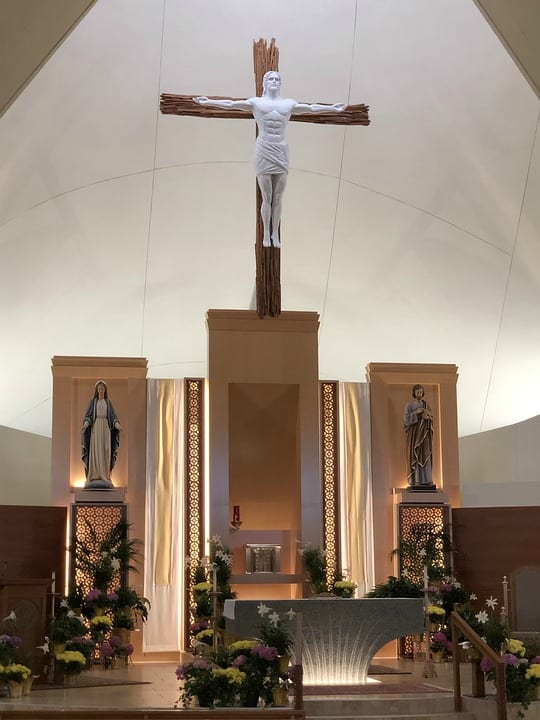The lawsuit claims that the the local diocese transferred hundreds of properties to seemingly separate companies after California Gov. Gavin Newsom signed a law removing the statute of limitations on most child sex abuse claims.
A recently filed lawsuit accuses the Roman Catholic Diocese of San Diego of fraudulently conspiring to transfers hundreds of properties to avoid paying massive settlements in sex abuse lawsuits.
According to The Los Angeles Times, the lawsuit was filed in San Diego Superior Court on Tuesday, less than two weeks after the diocese held a news conference in which it announced that it might have to file for bankruptcy.
During the press conference, a spokesperson for the Church said that the local diocese is being sued by about 400 people who claim that they were sexually abused by clergymen.
While many of the alleged sexual assaults occurred years or even decades ago, California recently removed the statute of limitations applicable to many child sex abuse claims.
The most recent lawsuit against the Church claims that the diocese transferred 291 properties to associated real estate holding companies in late 2019—just after state Gov. Gavin Newsom signed a bill opening a prolonged, three-year window for child sex abuse survivors to file legal claims against perpetrators and enablers.
The Los Angeles Times notes that the total assessed value of the properties is close to $453 million.

By transferring assets to external companies—one business for each parish within the diocese—the Church effectively lowered its practical liability in the event of any large or significant settlement.
Irwin Zalkin, a San Diego-based attorney representing about 120 sex abuse claimants, said that the lawsuit seeks to reverse and void each of the diocese’s real estate transactions.
If the court sides with Zalkin and the plaintiffs, the properties would be returned to Cardinal Robert McElroy, making them available for survivors seeking compensation from the Church.
Speaking at a news conference on Wednesday, Zalkin said that the diocese’s attempt to divest assets had “been years in the making.”
According to Zalkin, the Roman Catholic Diocese of San Diego began taking the first steps to transfer out assets in 2019, immediately after Gov. Newsom signed Assembly Bill 218 into law.
However, the lawsuit alleges that the diocese began forming separate businesses entities even earlier.
In 2010, for instance, the Church formed separate corporations affiliated with each of its 93 parishes. While these entities appear independent, Zalkin says that their articles of incorporation make it clear that they remain under the exclusive control of the diocese and its bishop.
For years, the companies held few—if any—assets.
After Gov. Newsom signed legislation temporarily removing the statute of limitations for child sex abuse claims, the diocese purportedly used grant deeds to transfer properties to the holding companies.
According to Zalkin, the Roman Catholic Church “waited to see what would happen with this legislation” in 2019, then moved the assets—all part of a long-term plan to minimize its financial liabilities in the event of further litigation.
Kevin C. Eckery, director of media and community relations for the Roman Catholic Diocese of San Diego, told the press that the signing of Assembly Bill 2818 had nothing to do with the Church’s actions.
“Over 10 years ago, long before Assembly Bill 218 was introduced, the Diocese began the process of formalizing in civil law the separate legal status of each parish and its assets,” Eckery said, explaining that, under Roman Catholic clerical law, each parish is permitted to retain assets separate from the diocese. “This included recording proper legal title for each parish to its own real estate.”
The Los Angeles Times notes that the transferred properties range in quality and value from church buildings and land to shopping centers, vacant lots, and individual homes.
Most of the properties, says the Times¸ are physically located within San Diego County, but some are not.
Sources
Lawsuit alleges Catholic Diocese of San Diego moved real estate to avoid paying abuse victims
New suit alleges San Diego Catholic diocese transferred assets to avoid paying sex abuse claims


Join the conversation!